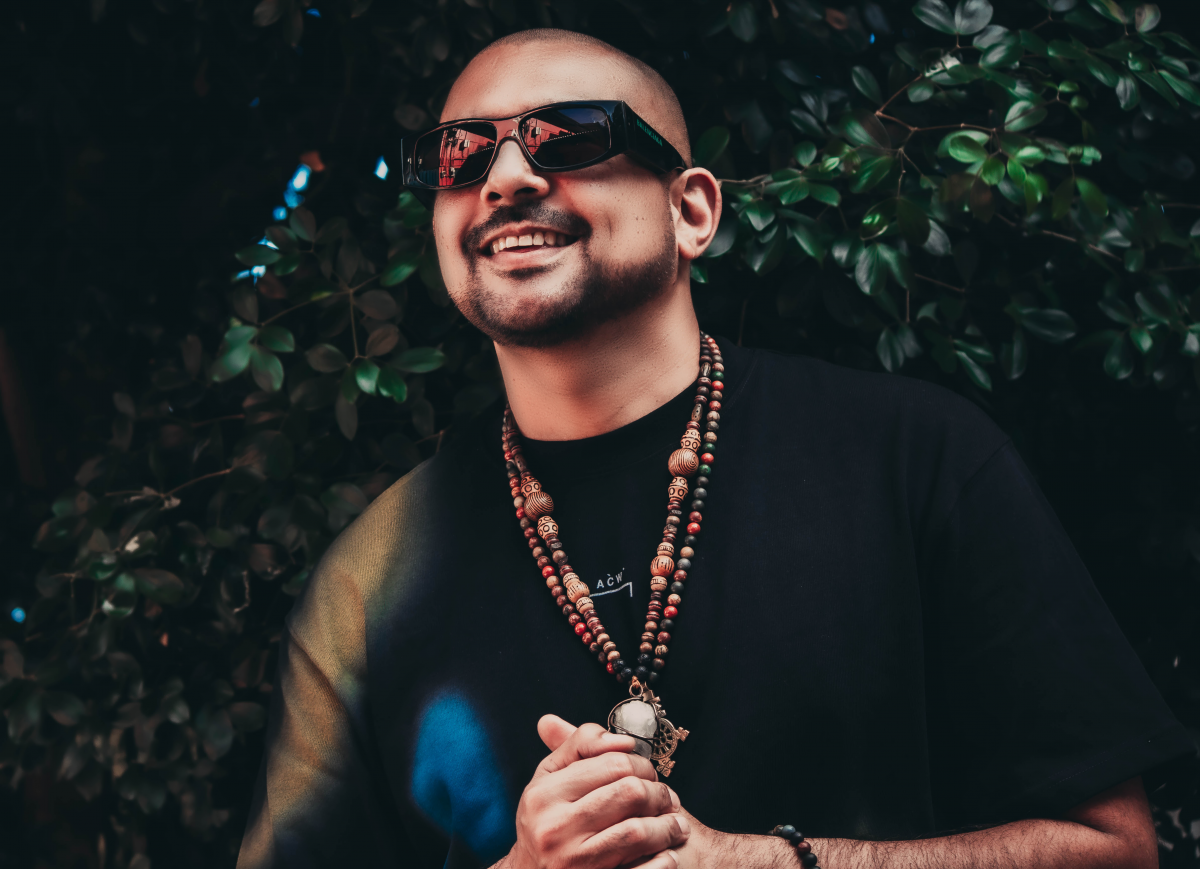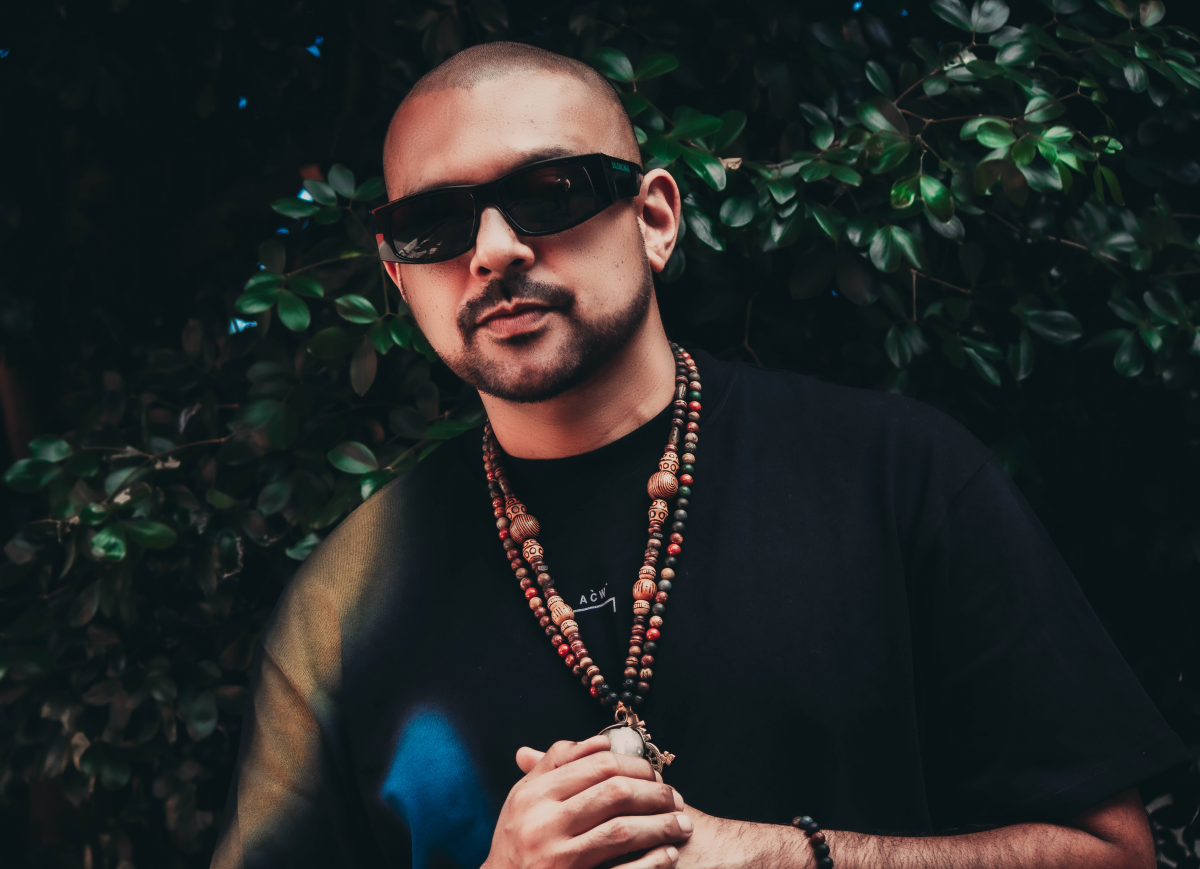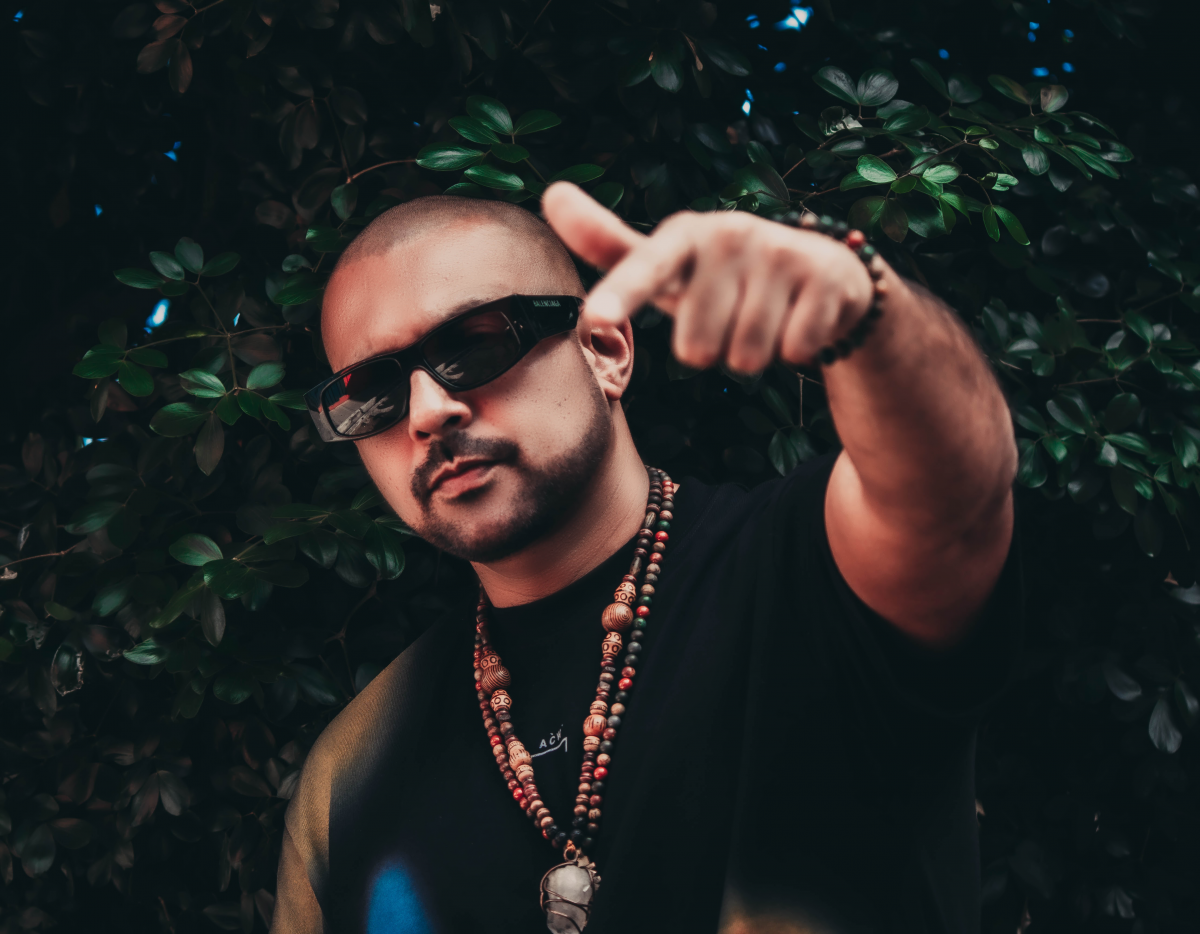Sean Paul On The Progression Of Dancehall, ‘Live N Livin’ Album & What’s Next
Sean Paul has sold more than 10 million albums globally and in the wake, became the most successful charting artist in Dancehall history. These days the 49-year-old, who has just earned his 9th Grammy Award nomination for Live N Livin , spends a great deal of his time creating new sounds and riddims.
DancehallMag sat down with the legend for a candid yet poignant two-part conversation in which he detailed his unique perspective on the evolution of the genre.
You’ve had a long and very successful music career as a Jamaican artist, and yet even as I pull up you’re here experimenting and making music. How do you manage to sustain that interest? Is it just out of your natural love and drive?
Yeah, the love and drive for it. There’s times where I do get tired. Like for instance, I was just saying to my son, you can’t shout so loud right beside me because I do music everyday. And he said, ‘but you do loud music.’ But hear wah happen, you see when somebody is a driver, and drive all day long, sometimes him want go home and rest. The same thing with music–right now for the past month or so, I don’t feel like writing a lot. I feel like building tracks to set my thing. Sometimes I’m in this mood and somebody just come and bring me a hot riddim, I’m like damn, dat bad. And I’ll just catch a vibe and go pon it. Then when it’s time for writing and recording to start, this [gestures to beat mixer and laptop] kinda slow down more. So everything is about balance bro. Everything. Ebbs and flows. Being ready and having patience.
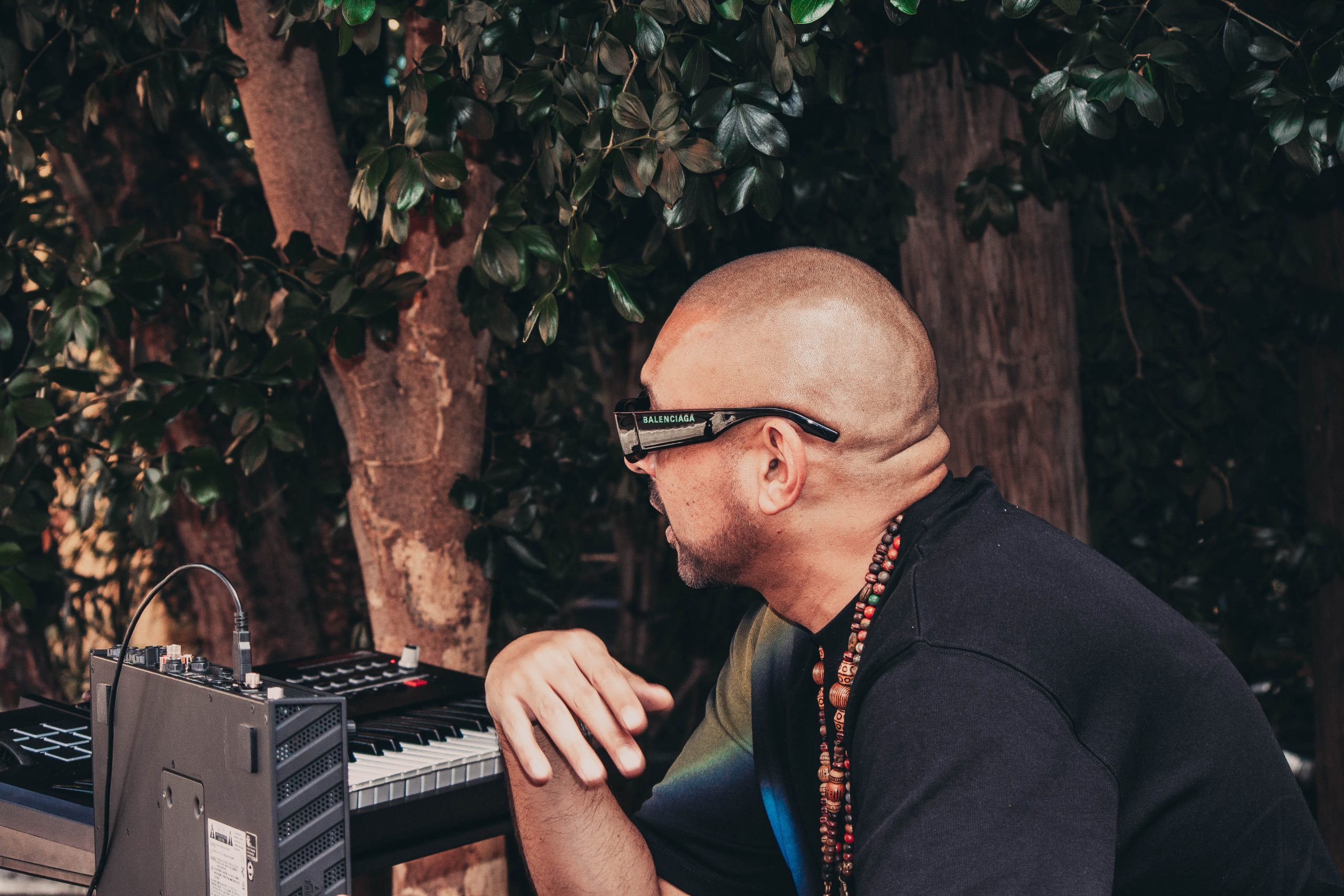
As one of the biggest artists who still support grassroots Jamaican music, you’ve spoken on the prevalence of violence in the music. It’s a nuanced take because some of the younger artists you ended up collaborating with on Live N Livin , do that type of music but obviously, you’ve been in the music for some time now and also understand that it’s also apart of it.
For me I understand that there’s a lot of– look at sports. There’s a lot of different shots in tennis, backhand, forehand, some that chop the ball this way, or that way. You have people that are better at those. They play tennis which is a rounded game, but they’re better at a backhand. For me, my ting, mi just better at making music that is more palatable for wider audiences. Because when you check it out, a lot of the violent music that comes out, is reflecting life. So nothing is wrong, but too much of one ting just isn’t good. Too much of one thing, it’s overbearing.
Especially when people like myself have buried friends who passed by violent means. Doh want hear it nuh more bro. As a kid it was exciting but I was inexperienced in life and maybe I wasn’t thinking about other people. And so when I look pon it now as a elder, when them a sing dem ting deh, weh actually happen to my bredrin. So many of my friends who could have been great if given the chance of life.
When people go to church they sing and make a joyful noise unto the lord but I believe that singing, in general, is that. When you sing those things especially the ‘hole inna head’ kinda ting all the time too much. I’m not saying it makes people pick up guns, I’m not saying it makes kids that were good turn bad, but at the same time, that’s not a joyful ting to me again.
It’s a very interesting and complex conversation and I respect the fact that you’re one of the people making the effort to have it. Even personally, I love dancehall music, but then when I look at the impact of some of the more violent songs–for instance riding through a ghetto and seeing children not more than knee-high and that’s the music they’re absorbing.
Yeah on a day-to-day basis and believe it or not, it does teach people things. Alphabet is taught to kids in a melodic way because it’s quicker for your memory to catch it. So when I never know what a coppershot is, is Bounty Killer song mek me know. It [the song] didn’t influence me to go and buy copper shots. I’m not calling out Killer tune only, I’m just saying there’s times when there are people who are more vulnerable than me that are already facing that lifestyle. I hope it don’t get misquote and that people don’t get me wrong but, when we do sing things like this, it kinda gives the general sentiment that that’s ok. It’s not ok, it’s not. If we’re gonna be the newspaper for the streets and report what is happening around us then fine. But it comes a time where our general thoughts of our youths in this country–we should be thinking about it.
It’s interesting that you use the analogy of sports and having a more complete game, because it correlates to one of my observations that I’ve held for a long time; which is that yes they have to report on the violence because it’s reality. But at the same time, there are tools that I feel are missing from their storytelling arsenal. A lot of what is used is first person writing for instance, when there are other tools like third person that could make the story more multi-dimensional.
Yeah, man like Nas. Nas has a song named The Gun , and he’s actually the gun. He’s saying ‘I’m a rusty old gun and I sit in a cupboard until this dude come and pick me up and then boom. I brought fear and pain into people’s lives.’ He’s telling you from a gun’s perspective. So that was very creative. I don’t find we do that often enough. There are creative people. But then again too, it’s the crowd too, so it’s just we. Why are we like that, why does bad news travel faster?
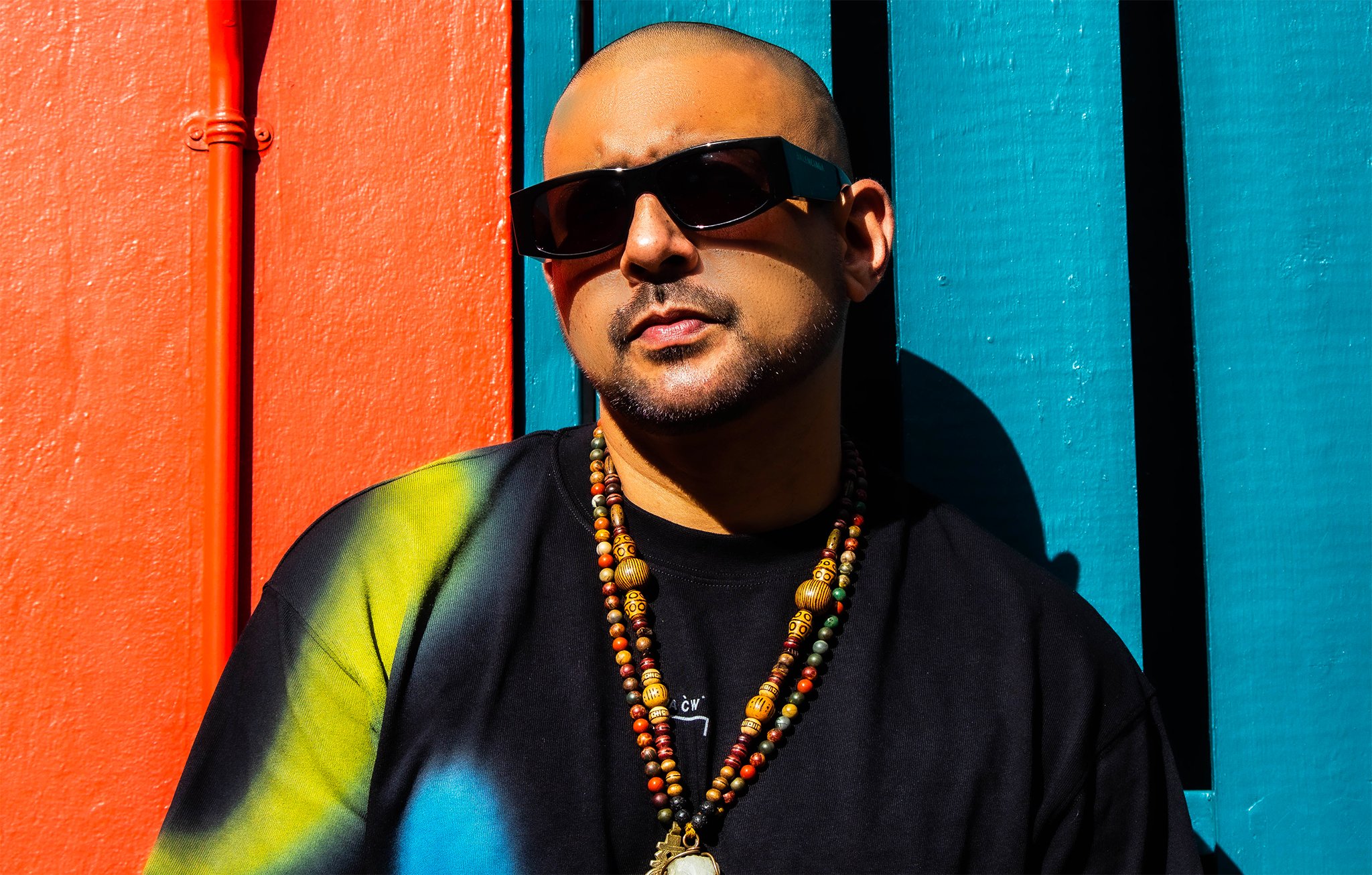
For me, I feel it’s a survival thing. If thousands of years ago, a lion walked into a village and ate a kid, and everybody was nonchalant about it, nobody would have it in their collective memories. But it’s frightening to see it and there’s grief, so we have a thing about it and there is a commotion. A lion is in the village and it is causing havoc. These are things that are supposed to force the leaders to hear the cry of the music, ‘yo there’s a lion in the streets’ go do something about it. But they haven’t done nothing about it for all these years. So for me it’s just become oversaturated and me nuh like that. They’re still doing an important job, to tell the truth. It’s just the way you do it. As you say, it could be more creative, it could be more constructive.
Like I have a song with Jesse Royal and Stonebwoy called Guns Of Navarone off the Live N Livin album, and it’s just talking about these same things, head back split and whatnot. But it’s not glorifying it. I’m not sayin I’m doing that, to dem bwoy deh. Yow when you really check it out who is dem bwoi deh? It’s nobody outside our genre. We are singing about ourselves. So that’s an important thing where, even though we’re talking the things that we’re seeing around us; let’s try to do it in a creative manner like Nas, or like Guns Of Navarone. It still a talk di badniss and what’s happening, but it aint saying it’s a great thing.
You bring up a really good point too, which is that time has affected the original purpose of the thing. We’ve been trying to have the same kind of dialogue, to say this is happening in the streets for a purpose. So it almost feels like this dialogue that you’re trying to have is supposed to-Evolve from there. Yeah. I think it’s supposed to push forward from there to say well we’ve been doing this, why don’t we try something else.
Exactly what I’m saying bro thanks for putting it into them words. Because it’s like an evolving thing. We’re not saying that part of dancehall is not necessary, but let us evolve from it. Let us try to sing a song that does talk about that, but it uplifts people’s mind to say yo that’s not right.
It’s happen to my family, friends, people I don’t even know who are important to society. It’s not a great thing to sing a song glorifying it. It’s really negative and really sad, yes we have to talk about what’s going on, but the way we are doing it. You see word sound power bro, it’s a big thing to me enuh. You can speak very very clearly, things into your life through songs. You can, honest to God, people don’t understand that. You can bring it into your life.
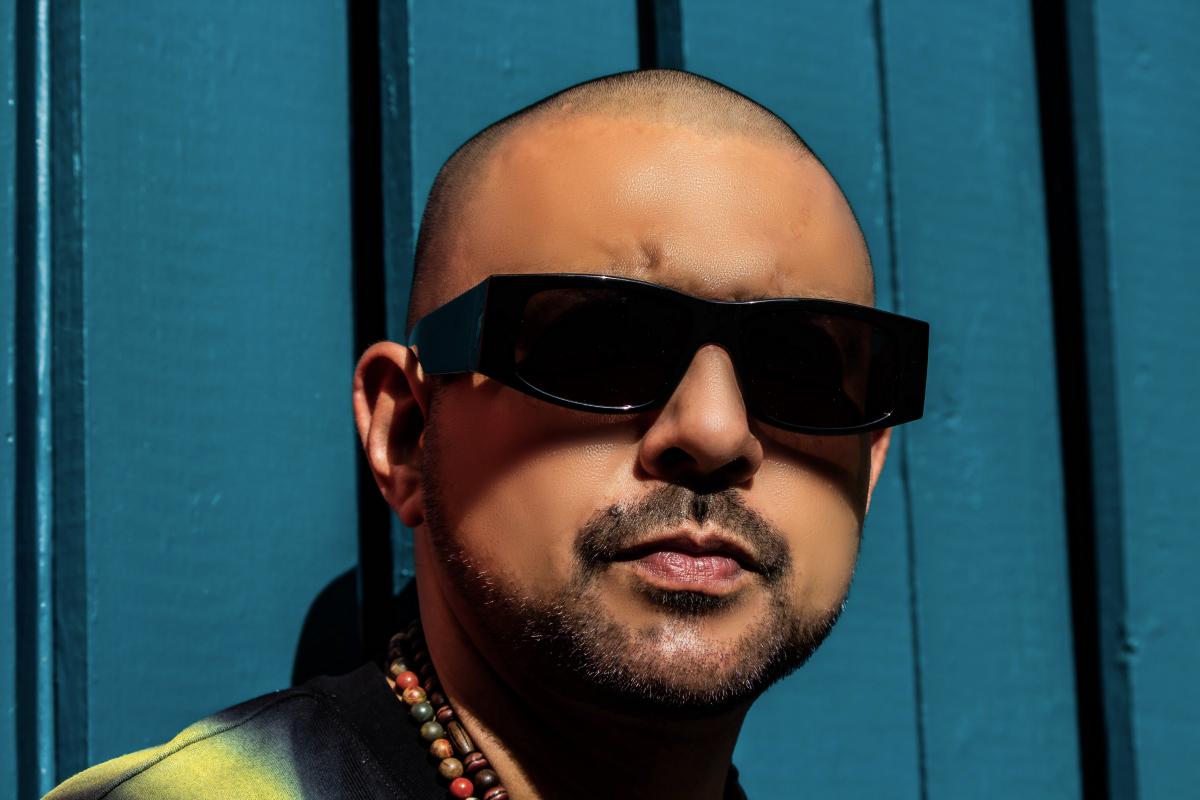
My early introduction to your music was early high school days where Gimme Di Light was on BET and that was our first real reason to watch it. Back then was such a different time even for our music, and I’m sure it was a different time for you personally. I’m sure there’s been a lot of growth and adjustment to the music and life. Can you describe some of that growth and change.
Technology back then, you did have to really record the song one time, on dub plate especially. There were less tracks too so when you go to record in a studio for a 45, you should know the song from before. After the pro tools and all these things start to become more and more advanced, we got more and more tracks because of the computers. It was easier to stop and that has impacted on a lot of the younger artists coming up I believe.
So technology helps in terms of- it gets my music out there, a lot of people can see me from my bedroom. I built this riddim from my bedroom, record it in there, send it out to the world from there; now I’m famous and everybody likes it. One in a million people going be like that, where they don’t go through the proper lines and training.
When me buck up Steely, and him tell yuh say up “RRR, You nah voice good” or “Come outta di studio if that’s how you’re going to voice”. You would have to pressure yourself as opposed to doing it from your bedroom. Not saying everybody is doing it from the bedroom but there’s less of that scrutiny by the big producers who know di ting and been through the training. That affects us too. So technology has been a thing that cuts on both sides of the sword. It changed things forever, but again we still have to look on the positive side. I know that I have some of that training, where I come from and so when it comes on to what we’re doing today, I try to put some of that back in there.
Other than that, to me dancehall has grown producer-wise and artist-wise, just as a genre. Even though it’s not selling the same as other genres– there’s a lot of things against us. Some of them are just natural and that’s just how it goes. We speak a patwa language. I love it, I express myself in it and I’m not saying people should change that. But I am saying that we are only three million people. Not even, and a couple more people on the outside(diaspora), so you might have 8 million people around the world that can speak patwa, but there’s billions of people here. So that’s a barrier to us in the first place.
When Reggaeton was coming up I was like boy, if this really catches fire it will be huge all over the world. It affected so many different genres. So Dancehall and Reggae has grown bigger and is a more accepted, worldwide known popular music. It’s not just underground. So all those changes happen. Like I said, there’s good and bad in all of it. Some people might say these foriegn people doing our music and taking it away, but then my point is; if they didn’t keep coming and doing it, where would be the proof of the influence? And then people hear me cuss bout those same people, because I don’t hear them bigging us up. I hear them saying this is my latest single. R. Kelly was one of them from long time. I respect when people like Beyonce come through and say I want a song with you. She came down here for it. So I do cuss about them as well, but only the ones that don’t show the appreciation. Like Rihanna, me big har up. Because Rihanna is saying I’m doing a dancehall album. So she’s giving energy to the genre by saying yo that’s the music I’m doing. She’s not just saying I’m innovative and this is my new single. Because I find that’s what a lot of them are doing.
Technology affected us, but you can get your music out there. The popularity affected us, but the more positive side is that we’ve had so much influence on these other genres that our key players from this genre that are highly sought after. So when you said something earlier about taking an interest in the culture and the history, that is what people like me and Shaggy and Bounty Killer and others–people who have had big careers from it, who look back and say we have to help these youths. We have to show them some form of way.
Do you think the future of dancehall is commercially viable and can it maintain authenticity in that case?
Yeah it can, there’s big songs that have come–some of my biggest songs, straight out what is authentic dancehall. Meaning it may not be the most hardcore, dancehall song you ever hear and to a dancehall enthusiast might be a more smooth sounding song. Like a Like Glue which had more melodies in it and that kind of stuff but it is authentic dancehall. So that’s an example. Temperature to me was a very hardcore dancehall riddim, what I did on it was popular, fun type of song. But when you check it out Reggae has essentially been a rebellion type of music, that’s what people think of when they think of reggae. They think of rebellion, they think of also love and romance and things like that. I don’t remember a lot of reggae hits if any that were sung in broad patwa, but it was the rebellion music and the attitude that taught us to sing how we speak. Sing how yuh talk.
So those were important parts of the evolution anyway, but when Bob Marley sang Turn Your Lights Down Low, is english dat. And everybody understood it. He broke down certain barriers and ting, and then the yutes now are like rebel to the point where ‘I wah chat how mi chat inna di song. Mi nuh wah say turn your lights down low.’
There’s songs like Fresh Vegetable , where it’s more patwa he [Tony Rebel] was singing. So the reggae revolutionary music gave us that subconscious want to chat how–I don’t think reggae was as raw as dancehall. But it was a revolutionary music. Where I see it going, huge. There’s countless amount of stories, I look at Chi Ching Ching, that was a success story for him and that’s why I say it’s growing. When you see hip hop music move from the boogie down Bronx and start go Queens, to Atlanta, Miami and West Coast, then it went France, Germany, England and start it’s own little thing; that means the genre is huge. It just takes the rest of the key players now. What it was we needed the talent to bring us there, but now you need people to manage that talent and proper business set up. Without trying to change us too much. But it’s always been a fight for me.
Yesterday I had a call from a very popular young artiste and him say a company want sign him, what mi think bout dem. I’m like bro that company is a great company, but with every one of them, you have to be in war with them at the same time. I know them say you in bed with them but you in war with them. Because they are putting out your music and they’re giving you money, they’re helping your popularity. But at the same point in time sometimes what is culturally appropriate for them to do, we nuh want do dat or we can’t do dat. The young artiste understood the advice.
Another bro, a big rapper asked me to do a song one time and he had a lyrics where he said I just want you to sing this. And mi say, ‘mi cyaa sing dat’. He was like, what do you mean? He was vexed, because he was like ‘the tune bad and I just want you to say this and I’m paying you. What’re you talking about?’ And I said to him, I understand what you mean by that and I know you don’t mean what my culture would see it as, but I can’t sing that to my culture. Because it’s going to be a wrong move in my footsteps. He was kinda vexed but these are the wars you have to go through. Everybody has their different levels too because even here at Dutty Rock, we’re not a big foreign company. We might have a riddim roun’ here that’s kind of sweet sounding, alot of melodies [gestures to laptop] like the one I’m building now. Some of them just want more hardcore stuff and they’re like that’s not for me and they sit it out. That’s your personal decision.
When you get signed, you still have to go war no matter if they treat you good, they give you a bag of money, they expose your work, you still have to rein them in. So don’t feel like it’s a pushover thing, it’s a fight every step of the way. So the genre is getting bigger and there will be more opportunities like that–as I said a very popular yong artiste call me and ask me about a company and I told him sign. Look pon di greatness weh me do with VP Records, who did the thing through Atlantic. We brought that whole thing to a different level. It don’t matter the label, as long as you are getting exposure it’s a stepping stone. Until you reach to a level like me, where I feel like I just want put out my own ting dem. But they are a stepping stone, they can help, you just have to fight with them.
Globally, you were the most streamed Dancehall artist on both YouTube and Spotify in 2021. Thoughts on sales and streams?
I have Spotify and dem ting deh and yeah I am streaming on those platforms crazy amounts. But for me, I have more of an old school kind of vibe. So the sales ting and the streaming ting has always been weird to me because I don’t really think like that.
In 2005, I got an email that said radio was losing its power. Because less and less people are listening, they’re listening more to internet stuff. It’s a thing that was going around in the business, and it was saying the internet and social media will be more effective. And I’m like, but what happened to the old ladies that live out in black river and those places. Dem have dem radio. That’s what they are listening to even if they have internet. That’s people, and there’s a lot more people like that to me. So to me the radio still have power. But this generation has proved it to me.
When I ignored that in 2005 and they said by 2010 the shift would happen. I’ve seen it with my eyes now. For me as a consumer, I’m still old school, but I’m seeing the effects of the Pandora and Spotify, Tidal and all of that. My problem with it was; I pay this amount of money per month and I can listen to these songs. But some people, and I do this myself as well, especially if it’s a genre that I don’t know, I will put it on the radio station and it will roll songs. So while that is recorded as a stream I may not know that song or really want to hear it, I’m just listening. But that person got a stream from me. So it’s not exactly like back in the day to me, when somebody say I want to buy this record, because it’s my song to own and play it in my car or when I want to play it. Pandora and these things have a playlist ting more time so by default people get streams. So to me it’s a weird thing. I love technology but I don’t really let it dictate my every movements. I moved into that very slow, social media and all of that.
Live N Livin was an opportunity to collaborate with an array of different artists, was that the intention?
It was for the purpose of taking part in the history of this country, of this culture that taught me so well, that I enjoyed so much as a kid, that I still enjoy today, that brought me to the world. For me, moving away or not being involved in the history of what is happening here is a no no. And I know it’s hard to do sometimes when you’re from certain areas and you become popular. A lot of people’s problems start to bother you. You have your own problems, but because you have that power now in society or in that community, a lot of things come at you. So it’s easy to get involved in certain things that you know you shouldn’t, or it’s easy for some people to just move from it. So for me, I come from a community in Jamaica where it’s a different setting. I get problems too, I get people’s problems everyday. But I’m sure it’s not like what Shabba Ranks was receiving in Seaview. Because there is a lot more neediness around him. He was there being seen everyday an ting so those things I take into account too. I see that I have the space to be able to partake in history, to help push and make sure the roots remain a factor. As opposed to it changing totally, completely and sound like something else. I think that’s what is going on now with a lot of the trap stuff. I never ever say don’t do it. I myself experiment with a lot of different forms of music in my songs. But mi still want hear the roots at times. I want the youth dem can DJ on punani riddim and pepperseed riddim just as they can with the dolly riddim or whatever that one is called.
Passing on the tradition
If you have a profession like doctor or lawyer, medicine or law, they have a standard. In music, yeah we come from a raw setting but so did Rock and Roll. Rock and Roll is a rebellious raw setting, and it came to have a certain structure that worked. When you look at Afrobeat and Reggaeton, that structure is actually missing from what we are doing in dancehall. There’s a certain amount of balance where we have to have the freedom to create, develop and mature in a way we see fit, but at the same time that structure needs to be there. And you need to pay attention to the fact that sometimes the quality of what you’re putting out is going to be affected when you have younger people not paying attention to that root of the thing and certain structures that need to be there. Don’t it Fambo? [Gestures to Fambo sitting to his right] When Steely say come outta di studio you nah voice good, weh you a deal wid. Dem youth ya nuh have dat.
When we don’t have people like Steely or Cleevy showing– like how you see [Nigel] Staff come here and I was asking him which one–because I can do the two keys. But I want to know which one- it’s more comfortable for me here, but he’s saying he hears it sweeter up there. Those are directions that are not really happening like one time.
When you like at the Main street camp, Danny Brown is a very jovial person and him love tell joke, that’s why all the songs were fun. Even when Mad Andrew was doing social commentary about something serious, it was funny. That was that camp, and then you have Steely now was fun but he was more hardcore in his productions. So the influence that the different camps and the different people, to me, mattered. Because when they say two energies, two heads are better than one. You form a group and you talk about a certain thing and–Dave Kelly had his own group too. But is like now, is a bunch of people out there who can do what they want to do. Only the ones who scrutinize themselves a lot and go back to the drawing board and say no, this nuh good enough. He’s competing with his own self, with his last songs. Only those you will hear a lot and will have longevity.
Why Live N Livin?
Reason being, many years I wanted to do certain things. You know Dutty Cup was a crew at first. And over the years I’ve worked with other artists like Shane O. We worked with people coming up who deh inna di game before me like Fambo, people like Leftside. Producers like Stephen Mcgregor, a younger Don Carleon who later became huge. But at first they weren’t really that big. Blacks is one of them. Blacks the producer, RIP to him. These were people who I saw and felt talent from and said yo I have to work with them. So alot of the times you have these dreams and you want to do certain things and the companies you’re in bed with won’t hear it. I can give a couple instances.
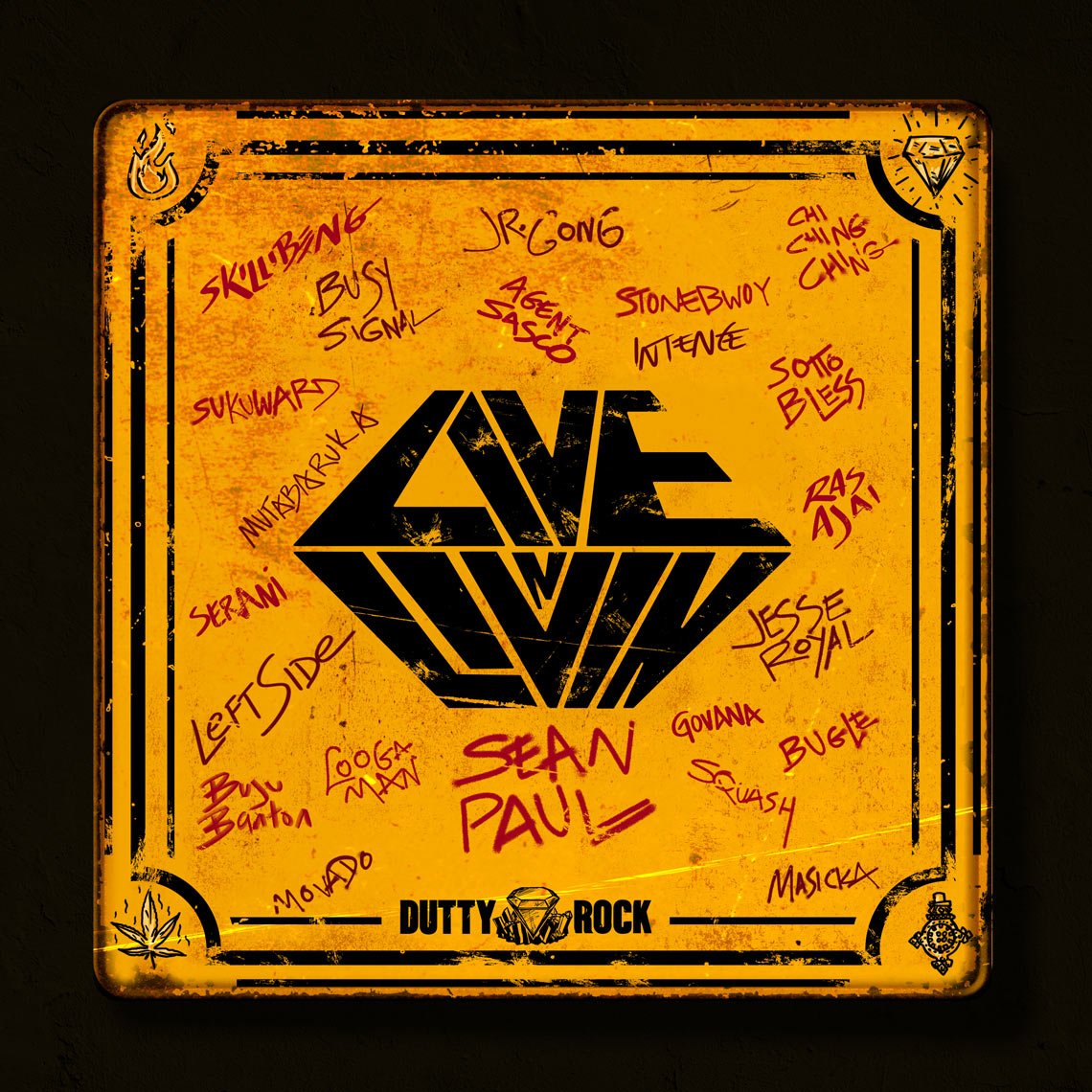
One time I was working on a song with Konshens, and they wanted to put Rich Homie Quan on it. And I had to cuss them, because I didn’t know who Rich Homie Quan was. He turned out to be a very successful artiste, but they wanted to put him on it and I was like ‘but I want to put a Jamaican artist on it who is hot right.’ Because that makes sense to me. We ended up putting Konshens on there, but we had to fight for it. So there’s always that fight. You will do fifty tunes and they pick 9 from it and say this we a work with. And is like damn, so what happened to the rest of the songs? They might go to waste or whatever.
So over the years I’ve wanted to do it and when I first signed with Island Records they gave me the creative space to do a thing. To put out some music, just singles as 45s and then I started doing jugglings. I said, I want do a album like what I want to do and I ended up putting together some singles and start realize this is the album. They gave me the opportunity–this is 2017 when I signed, I told them I wanted to put out a mixtape and they said don’t do it. They said, let us put out the album first. A bagga tings gwaan. My father got sick so my focus switched up. I just put a bunch of tunes together and put them out and it did very well. That was called the prequel. Because I was saying this isn’t really the finished album, my focus changed, so I’m just going to put out that music. Did well on tour with it, but I didn’t get to put out my mixtape. Then the year when covid hit, they said we want to push back the album, I said alright let me put out my thing. So it was kinda coming from a mixtape perspective. So that’s why there’s so many different artists and producers on there and only one single song from me. Everybody who I worked with on it, I rate dem. From artist to producer to engineer to the artwork person. All of them I see as people who a lot can come from if given the chance.
What’s next?
Putting out this album Scorcha, that is for Island Records. That still have a few hardcore dancehall hits on it, but it also has a pop music side on it. That comes out in April, I’ll start touring again around that time, hopefully.
We already putting together a next album for them now because we have two albums. We’ve been putting that together and we’re a few tracks deep.
Other than that I want to put out albums for artist like Ching, we have two more albums for him. Fambo and myself doing a ting, Me and Busy Signal a do a next ting. So we’re looking forward to doing works like that. Big up Ras Ajoy artiste from Portmore area, brilliant writer and voice as well who I’m working with closely and Soto Bless. Some people who we’re working with in the Dutty Cup camp this year so we going be releasing a lot of singles and jigglings underneath Dutty Rock’s umbrella. As for timelines, I only know Scorcha for now and it depends on how big it gets. Usually, my albums with a major company that gets push, goes a certain distance so it might be a few months of working on that but in-between time we’ll be dropping singles for different artists.

